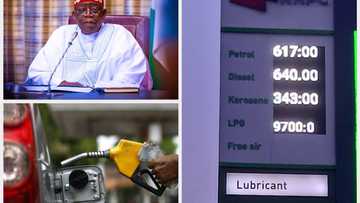Eid-el-Kabir: Prices of Rams Skyrockets to N450K Across Markets Amid Muslim Sallah Celebrations
In anticipation of the Eid-el-Kabir (Sallah) festivities, the cost of rams has witnessed a significant surge across different markets in Nigeria.
Unlock the best of Legit.ng on Pinterest! Subscribe now and get your daily inspiration!
On the one hand, customers are expressing dissatisfaction with the hiked prices of rams in the markets; the traders, on the other hand, are bemoaning the low patronage.
Even though the traders attribute the hike to the current economic realities in the country, some Muslim faithful lament that the current prices could deny them the privilege of killing rams for the celebration.
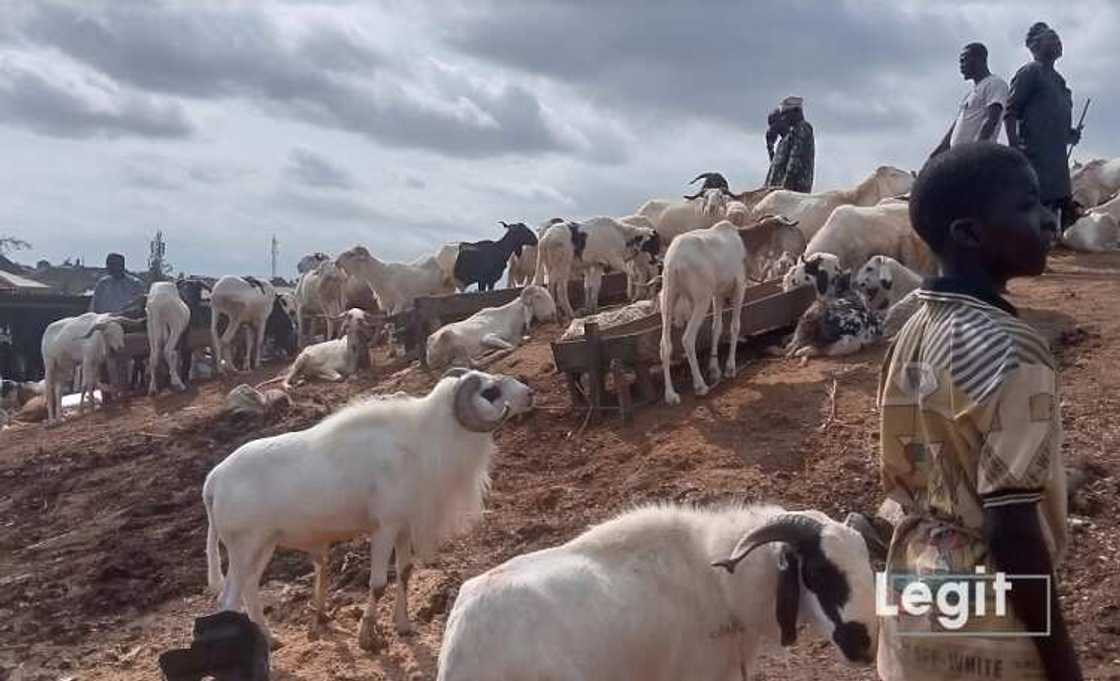
Source: Original
According to a market survey conducted by Legit.ng, rams are sold for prices between N90,000 and N450,000 depending on the size, type and market.
As a result of the high prices, Legit.ng observed that patronage was remarkably low compared to previous years when a crowd of last-minute shoppers would flood different livestock markets to buy rams and other food items.

Read also
"N860/Dollar": Petrol marketers recent government policy, naira devaluation for hike in prices
PAY ATTENTION: Join Legit.ng Telegram channel! Never miss important updates!
Suraj Wushishi, a ram trader, said that he suspects the low patronage may be because many salary earners have not received their salaries since it is not yet the end of the month.
Ram prices in different markets almost doubled in one year
When Legit.ng correspondent visited the famous Alaba Rago livestock market in Ojo, Lagos, a few customers negotiated with different traders to get the best bargain possible.
One Mallam Haruna Abu spoke with Legit.ng saying that many of the customers that came to the market were complaining about the prices of the rams, even as the cost of everything in the country had also gone up.
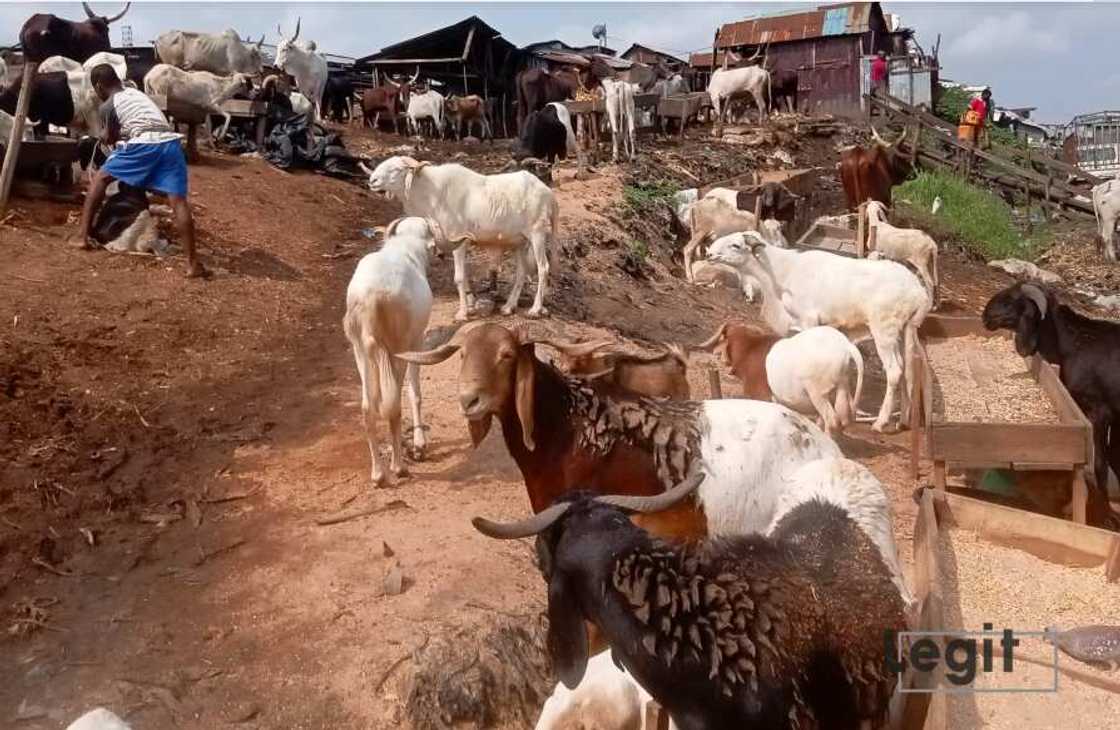
Source: Original
"This ram here is about N270,000. Last year, I sold the same size of ram for just N180,000. We don't just fix the prices like that. The price change is determined by how much we buy and the cost of transportation from the north to Lagos. But unfortunately, customers don't understand that," he said.

Read also
NNPC, Dangote speak on refinery production commencement date as Nigerians battle high petrol prices
Another trader, who gave his name as Saheed Adeleke, showed Legit.ng some of his livestock, which included goats, rams and cows, emphasising the prices of rams.
He said:
From amongst my stocks, the cheapest ram you can get is for N85,000. I have the ones of N120,000, N200,000 and even N350,000. It all depends on your preference.
The prices were no different when Legit.ng visited the livestock market at Oke-Afa, Isolo, Lagos. The cost of a small ram sold for about N60,000 last year was now fixed at N90,000.
The largest ram available at the market was priced between N300,000 and N450,000, while the medium ram falls within the range of N140,000 to N250,000.
One of the traders told Legit.ng that his biggest ram was sold the previous day at N420,000 after much plea by the customer.
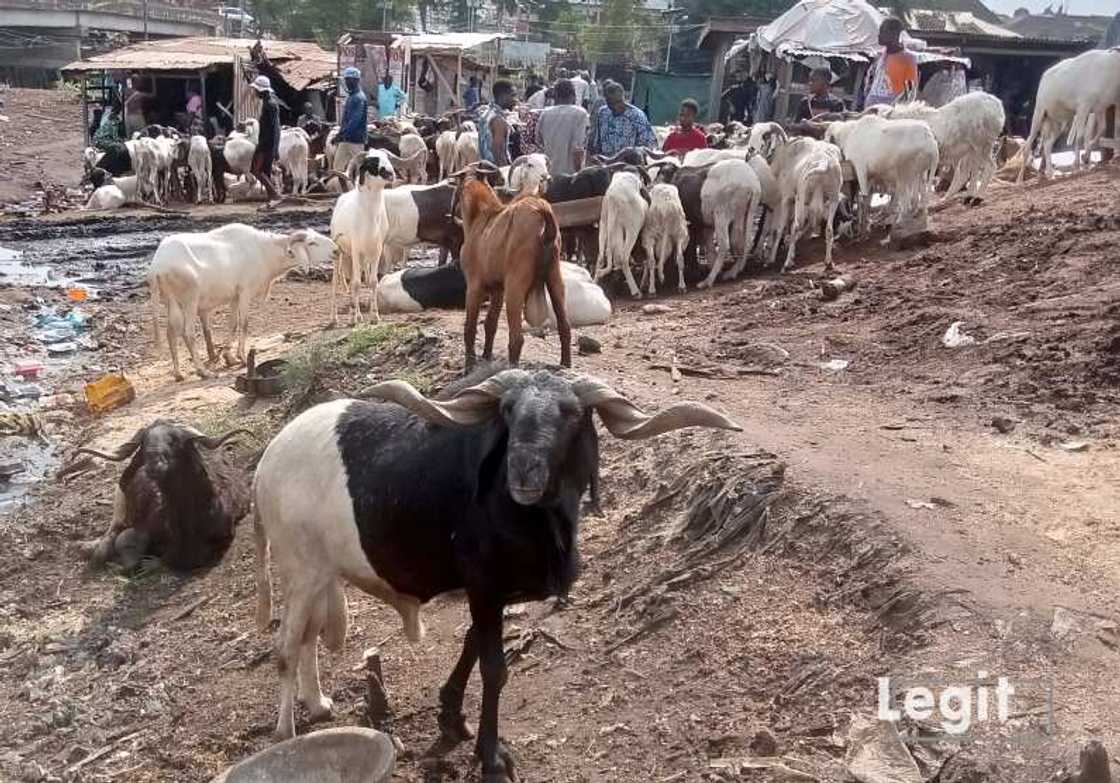
Source: Original
Why prices of rams have jacked up
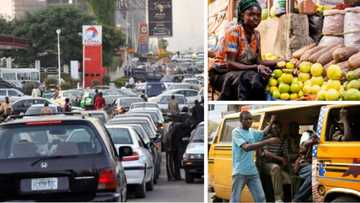
Read also
“Small businesses will crumble completely”: Business operators lament hardship as fuel sells for N617/litre
Sule Abbas, a trader at Oluwaga ram market in the Ipaja area of Lagos State, told Legit.ng that several factors beyond the trader's control were responsible for the increase in the price of rams.
He said:
The current inflation in Nigeria has affected every purchasable item in Nigeria, and rams are not an exception. The price of everything in Nigeria has gone up in the last few months, especially since the fuel subsidy removal.
You may ask, how does subsidy removal affect ram prices? Let me explain to you. Fuel subsidy removal equals to increase in fuel price. An increase in fuel price equals an increase in transportation that we pay to bring the rams to Lagos from the north.
Abbas explained that it used to cost him about N7,000 to transport each ram from Potiskum in Yobe State, but today, the price is about N12,000.

Read also
Experts predict fuel to sell for N1,000 per litre by December as FG says 56 firms now have import license
He added that some of his fellow traders go as far as Chad and Niger to buy rams and will spend even more on transportation.
Until the rams are sold, they must be well-catered so they can be sold reasonably and prevent the trader from incurring losses, Mallam Jamiu Wakil told Legit.ng.
He added:
Some customers don't know that it costs us a lot to also feed the rams to eat and treat them when they fall ill for them to be in good condition for the customers to buy. The cost of animal feeds has also increased, but that's no excuse to not feed the animals. And so we factor this and other indices in the price of the rams.
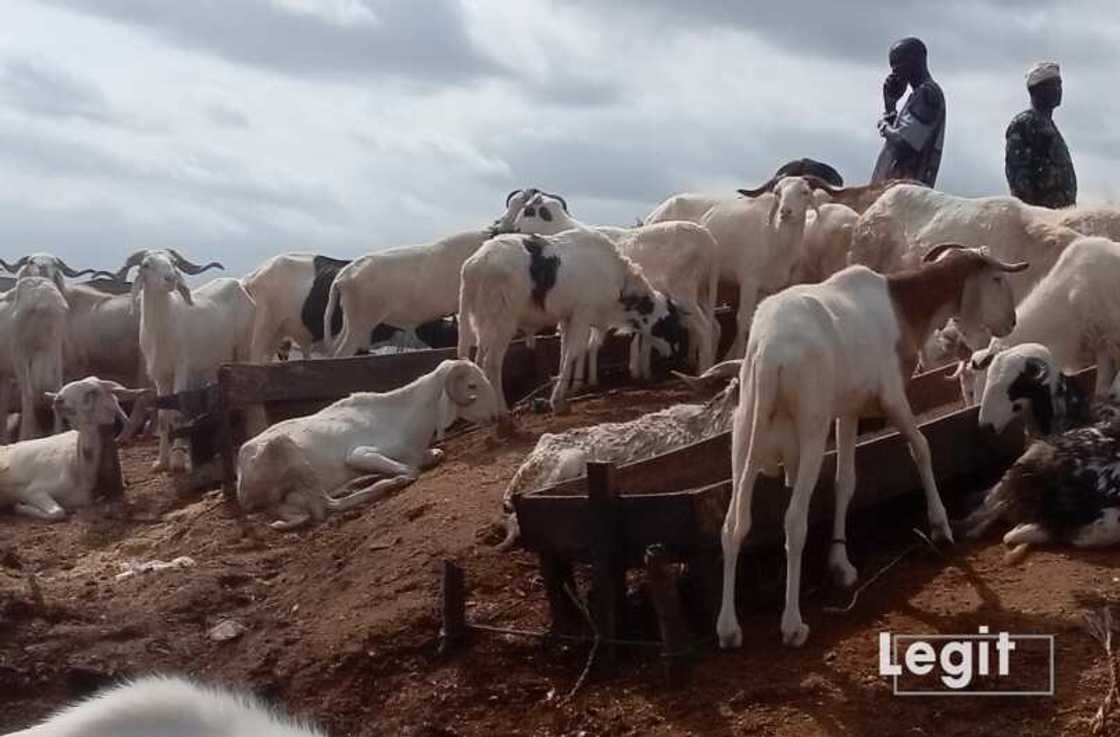
Source: Original
Customers lament high ram prices
The exorbitant prices have posed challenges for some Muslim faithful, hindering their ability to purchase rams at the desired rate or in the expected size they had anticipated.
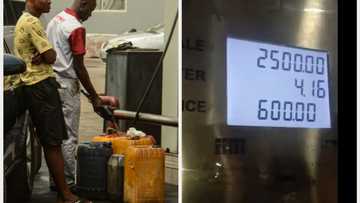
Read also
"It is for the best" NNPC speaks on fuel price increase to N617 per litre, Lagosians pay less
Olalekan Akanji, a potential buyer, could not help lamenting what he described as "outrageous prices" of the rams. He told Legit.ng that the prices have doubled from how much they were sold last year.
He said:
Imagine a ram of the same size that I bought last year for N80,000 is now sold for N150,000. I understand that prices must go up because of the economic realities, but not this high. These traders need to be more considerate.
A customer who gave his name simply as Mr Taofik told Legit.ng that the Oke-Afa market is the second market he would be visiting in an effort to get a better bargain.
The prices were too high at the first market I went to and that's why I'm here. I was shown rams for the price range of N210,000 to N320,000 because I want a large one for my fairly large family. I'm hoping that I might find a better bargain here. If not, I would try another place.
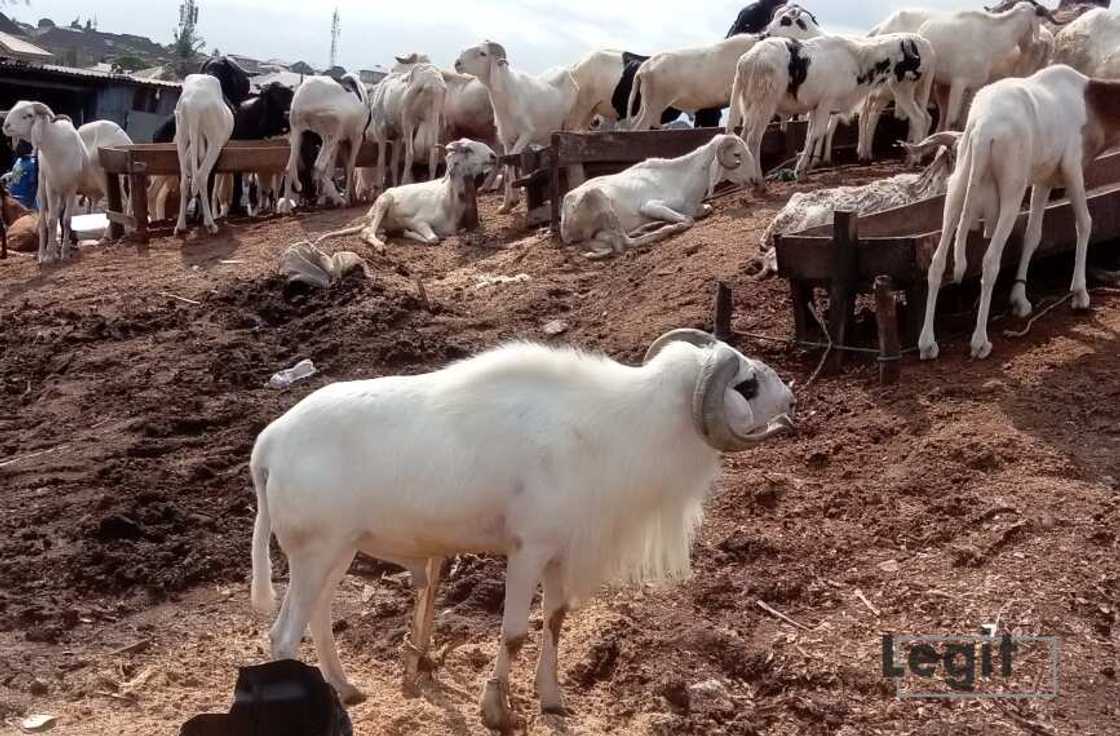
Source: Original
President Tinubu Declares 2 Day Holidays for Eid-il-Kabir Celebration
Meantime, Legit.ng has also reported that the President Bola Tinubu-led federal government has announced Wednesday and Thursday, June 28 and 29, as public holidays for the Eid-il-Kabir celebration.
The announcement was made in a statement by the Ministry of Interior's Permanent Secretary, Oluwatoyin Akinlade, on Monday, June 26.
The Eid-il-Kabir festival is one of the ritual rites carried out in the Dhul-Hijjah, the last 12th months of the lunar calendar, to remember the sacrifice made by Prophet Ibraham in Islamic practice.
The ritual rites involved taking six days in Mecca and Medina, where Prophet Ibrahim reportedly carried out the act, and those who could not travel to Saudi Arabia from Nigeria were expected to kill animals if they could.
Source: Legit.ng


